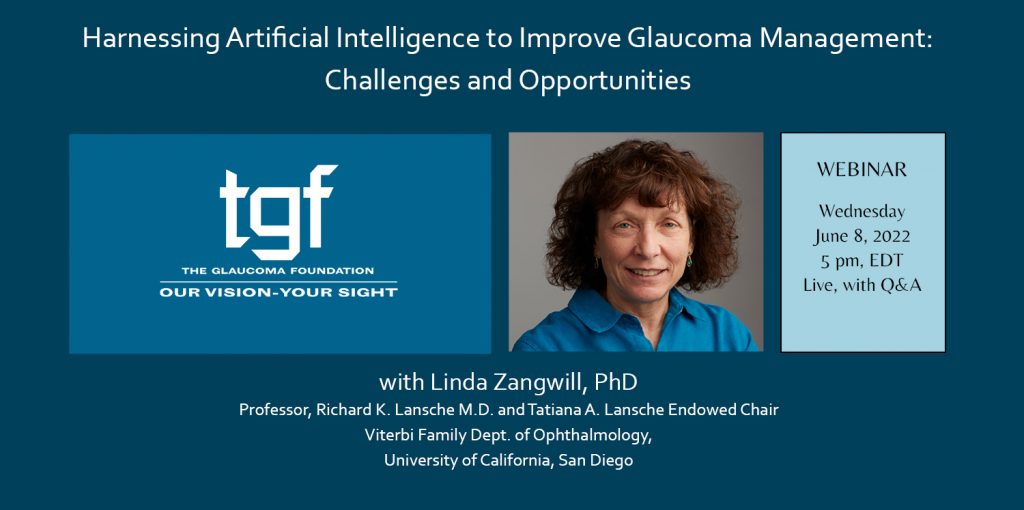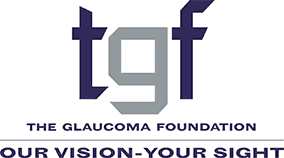
Join us on Wednesday, June 8th at 5pm where Dr. Linda Zangwill, PhD will discuss the how artificial intelligence can be used in improve glaucoma management.
This webinar will provide basic information about artificial intelligence (AI) in ophthalmology, and an overview of the latest developments in the use of AI to automate and improve the management of glaucoma.
Dr. Zangwill’s presentation will highlight the opportunities for providing real-time AI decision support to clinicians treating glaucoma patients, as well as the challenges in implementing appropriate AI systems in clinical practice.
About Dr. Linda Zangwill

Professor
Richard K. Lansche M.D. and Tatiana A. Lansche Endowed Chair,
Viterbi Family Department of Ophthalmology,
University of California, San Diego
Linda Zangwill, Ph.D., Professor of Ophthalmology at the University of California San Diego serves as Director of Clinical Research of the Hamilton Glaucoma Center, and Director of the Imaging Data Evaluation and Analysis Reading Center. Dr. Zangwill has published over 350 manuscripts in peer-reviewed journals. She is an elected executive committee member of the Glaucoma Research Society and is an Association for Research in Vision and Ophthalmology Gold Fellow.
Dr. Zangwill has been continuously funded by the National Eye Institute for 25 years as Principal Investigator for the Diagnostic Innovations in Glaucoma Study (DIGS) and more recently, the African Descent and Glaucoma Evaluation Study (ADAGES). Dr. Zangwill’s clinical research focuses on improving our understanding of the complex relationship between structural and functional change over time in the aging and glaucoma eye, developing computational and machine learning techniques to improve glaucoma detection, developing methods to differentiate between highly myopic eyes with and without glaucoma, and identifying risk factors that can predict rapidly progressing glaucoma.
